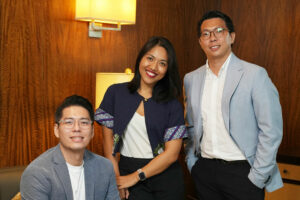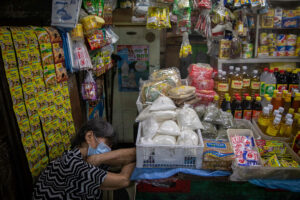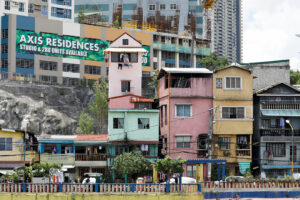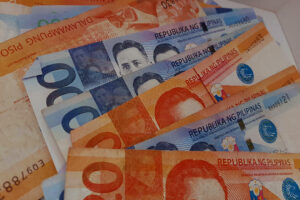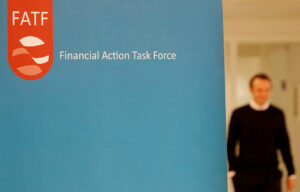COLD STORAGE, a frozen seafood company, is diving into the sustainability game because once, many years ago, they ran out of scallops.
During the launch of their campaign called GenSea: Dive into Sustainability on June 20 at Manila House in Taguig, Cold Storage also announced their partnership with the organization Save Philippine Seas (SPS). Marco Qua, current president of Cold Storage (taking over from his father, founder Mariano Qua), told BusinessWorld a story about bringing his father to dinner at a restaurant they supplied — just to find out that it had run out of scallops (which should have come from Cold Storage). Asking around their own office, the younger Mr. Qua found out that there were no scallops to be found.
“We have to do this, or else, in the next 10, 20 years; that’s going to get worse,” he said. “It’s more important to do it for the next generation. Seeing my nephews and nieces, I want them to be able to enjoy whatever seafood I enjoy.”
“Today, with Save Philippine Seas, we take our biggest leap yet towards sustainability,” he said in a speech. “GenSea is more than just an event; it is a movement dedicated to advocating for sustainable fishing practices and responsible sourcing. Our collaboration with SPS underscores our unwavering dedication to minimizing our ecological footprint and preserving marine ecosystems for generations to come.”
“As part of this campaign, I am happy to announce Cold Storage Seafood’s first donation to Save Philippine Seas. This contribution is just the beginning of our various projects and activities designed to raise funds and support the vital work of SPS for ocean conservation and the protection of our marine wildlife and biodiversity. We also aim to engage with F&B professionals and influential individuals to amplify our reach and impact to make lasting change for good,” he said.
SUSTAINABILITY: SOURCINGThe GenSea campaigned kicked off with a forum moderated by award-winning author and chef, Angelo Comsti, and he was joined by a panel of restaurateurs: Nicco Santos and Quenee Vilar of Restaurant Aurora, Stephan Duhesme of Metiz/Automat, Patrick Go of Your Local, and Rhea and Jayjay SyCip of The Fatted Calf*.
Ms. Sycip painted a larger picture on the difficulties of procuring food — she spoke about a sourcing trip she took to Mountain Province, to a town three hours away from Baguio.
“The conditions that we saw (were) heartbreaking. We found out that for every P100 that we are paying for vegetables or fruits, only P10 goes to the farmers. The P10 that goes to them, it’s still distributed to farmhands, the seedlings; and that’s talking about Class A fruits and vegetables,” she said. Produce of a lower rank get just P5 for every P100. “That’s not sustainable. There will come a point that they will just stop planting,” she said.
“For us, it’s really looking at the entire circle. It doesn’t start actually with us creating, thinking of a dish, and making sure it’s good. It’s also going back, how it actually start(s): down to how much a seed would cost for these farmers. We have to be fair as chefs, in terms of paying what is due to them.”
SUSTAINABILITY: PROFITABLEMs. Villar, meanwhile, discussed how sustainability can help a business make profit. “[On the] operational side, it’s actually cheaper.”
She talked about making stocks and broths, the backbone of many dishes. Instead of buying new ingredients to make stock, they reuse fishbones, or vegetable peels. “You cut down on the price, or your costs,” she pointed out.
“You have to show them the numbers,” she said, referring to promoting sustainability among restaurateurs. “We wouldn’t really be convinced if you don’t show them the data,” she said.
Meanwhile, Ms. Sycip’s husband, Jayjay, discussed how customers can participate in sustainable dining (beyond picking the right restaurant, that is).
“I guess it’s more of eating smarter. Knowing where your food comes from, knowing the source of the restaurant… I think it’s a big factor. By helping the proper channels… sustainability, it’s an umbrella. It encompasses a lot of sectors. It’s not just the food industry. You have to be intentional.”
*BusinessWorld wrote a story about The Fatted Calf, and their own ways of sourcing: https://tinyurl.com/bdcrc4r
PROMOTING SUSTAINABLE SEAFOODMeanwhile, Morris Qua, Marco Qua’s brother and Vice-President at Cold Storage, talked about their discussions with the Department of Agriculture – Bureau of Fisheries and Aquatic Resources.
“We want to promote sustainable seafood, (with) the establishment of Marine Protected Areas (MPAs). MPAs are crucial in promoting sustainable seafood, because it allows the fish stocks and seafood to also recover — not just be exploited and be used,” he said. “The moment that that recovers, that means we’re going to have more fishing stock and more supply. That’s going to be very helpful not just to the fisheries sector, not just to the restaurant owners, but to the entire public. Ensuring that our oceans are healthy: that is the key component.”
The Qua brothers have gone on to launch a line devoted to local fish and are experimenting with using biodegradable material for their packaging (Cold Storage imports frozen seafood, to be packaged in plastic). “Even if it costs a little bit more — honestly, it’s like investing in our future.” — Joseph L. Garcia
*BusinessWorld wrote a story about The Fatted Calf, and their own ways of sourcing: https://www.bworldonline.com/arts-and-leisure/2023/06/01/525987/the-taste-of-fate/

